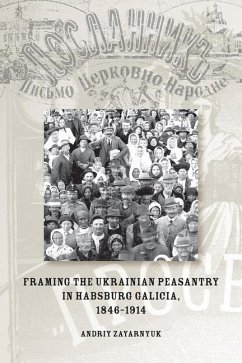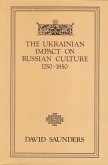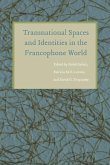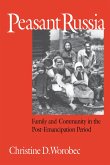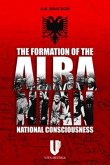In his monograph Framing the Ukrainian Peasantry in Habsburg Galicia, 1846-1914, Andriy Zayarnyuk traces the evolution of modern collective identities among Ukrainian peasants in Austrian-ruled Galicia. His examination of identity-construction processes spans from the introduction of a new social system by Austrian emperors in the late eighteenth century to the establishment of an organized nationally conscious rural public space at the beginning of the twentieth century. Zayarnyuk's inquiry probes several contexts: intellectual discussion of peasant national and social identity; popular representation of the peasantry; and peasant self-representation, including response to peasant-targeted programs and the work and influence of political and social activists in villages. The book focuses on a particular region of Galicia (the Sambir area in the Boiko region) for its discussion of identity politics at the grass-roots level, narrowing in on specific villages and analyzing the work of village-activist networks. The breadth of his data allows the author to explore an alternative to the generally accepted notion of the linear development of the Ukrainian national movement and Ukrainian national consciousness in Galicia. The book presents a complex articulation of peasant-identity recognition based on competing visions of national-community identity, modern individual identity, as well as social problems and their proposed solutions. The author emphasizes the peasants's own influence on those identity-construction processes by including insightful accounts of the lives and agendas of peasants and peasant activists. This book also provides a rich source of information on the local history of the Boiko region, and in particular, the Sambir and Staryi Sambir areas of Galicia.

